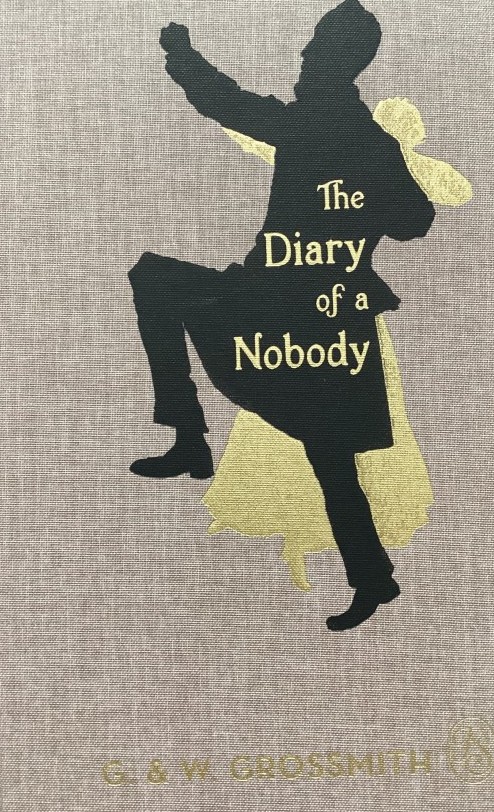Inspiring Older Readers
 posted on 13 Sep 2023
posted on 13 Sep 2023
Diary of a Nobody by George and Weedon Grossmith
I’d personally go as far as saying that George and Weedon Grossmith’s timeless creation, The Diary of a Nobody, could be considered a cult novel. It has most of the key attributes required for cult status – not widely read or known outside a smallish coterie of admirers; amongst those who love it, it inspires a genuine and deeply felt love and loyalty; and, it acts as a gateway bit of reading that may well lead you to such other gems as Three Men in a Boat, The Secret Diary of Adrian Mole and large dollops of P.G. Wodehouse. Younger readers might also want to include the phenomenally successful Diary of a Wimpy Kid in its lineage. One thing seems to bond all those who fall under its spell – once read it’s impossible to forget and the need to evangelise its qualities to those less fortunate who haven’t come across it, is overwhelming.
I’m not quite as vociferous as former Prime Minister, Lord Rosebery, who is on record as saying that "I regard any bedroom I occupy as unfurnished without a copy" but I have read the book more times than I can remember and I still find new things in it – sly bits of humour, unexpected pathos and just the inkling of admiration for our hapless hero.
That man is Charles Pooter, created in 1888 by the Grossmiths (Weedon provided the illustrations) and his determinedly unremarkable life in its unremarkable detail was published in weekly episodes in the famous granddaddy of satirical magazines, Punch. Pooter is the embodiment of petty-fogging, lower-middle class Victorian rectitude. A steadfast but unremarkable bank clerk, Pooter lives a suburban life married to the ever patient, Carrie and attended by his friends, Cummings and Gowings. Although he is often the butt of their jokes, the three men maintain a friendship that survives a continuous string of minor fallings-out and disagreements.
George and Carrie also have a grown son, Lupin, who no longer lives at home but who, about half way through the diary, returns to complicate their lives considerably. Lupin is something of a chancer and has the potential to be a romantic wastrel – were it not for Pooter’s firm hand – a hand that often makes situations more rather than less complex. Pooter’s greatest aim in life is to get Lupin a post in the same bank as he himself works in and thereby bring together all his greatest loves and wishes.
In 2007, writing for The Guardian, Jon Wilde tried to capture the essential and unexpected charm of this unlikely masterpiece:
“On the face of it, Charles Pooter would appear to be a most unlikely literary hero, A petty-minded, buffoonish office clerk meticulously detailing his life of quiet desperation hardly sounds like a character to inspire unswerving fascination and dedication for 119 years and counting. But that would be to underestimate the masterful subtlety employed by Grossmith to draw us into Pooter's humdrum life and actually make us give a hoot. Pooter might be gauche, snobbish and more besides, but he's also a decent sort of chap. Even as we laugh at him, we are in sympathy because he's all too human."
And that’s where Wilde puts his finger on the essence of this book. While we laugh at some of the more farcical events in Pooters life – painting the inside of his bath red, playing ‘cutlets’ (read it for yourself if you want to know) or trading social insults with the butcher – we find ourselves beginning to realise that there’s actually a bit of Pooter in all of us. In some cases (mine included) more than a little bit.
The world would be a sadder place without the Diary of a Nobody and your own world will be richer if you read it. And don’t just read it once, it’s a book for life.
Paperback copies are easily found and will cost you well under £10. The copy shown here is the Folio Society edition from 2016 which can also be found on the second-hand market for relative peanuts.
Terry Potter
September 2023